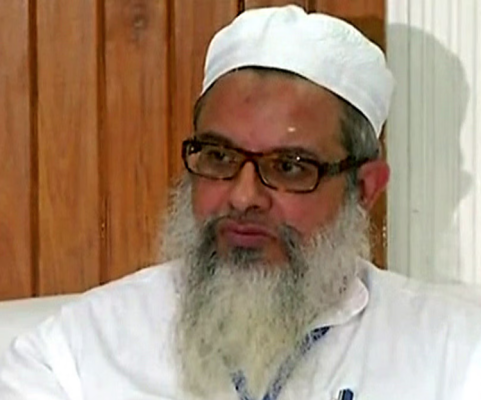Maulana Mahmood Madani is a prominent Indian Islamic scholar, politician, and leader of the Jamiat Ulama-i-Hind (JUH), one of the oldest and most influential Muslim organizations in India. Born in 1960 in the town of Deoband, Uttar Pradesh, he hails from a respected family of scholars with deep roots in the Islamic tradition. He is the grandson of Maulana Asad Madani, a prominent scholar and leader in the Indian freedom struggle, and is the son of Maulana Arshad Madani, a former president of Jamiat Ulama-i-Hind.
Maulana Mahmood Madani is known for his active role in both religious and political spheres. Under his leadership, Jamiat Ulama-i-Hind has sought to promote a vision of Islam that is rooted in social justice, education, and interfaith dialogue. He has been vocal about the importance of preserving the identity and rights of Muslims in India, while also advocating for broader issues such as communal harmony, secularism, and the protection of India's democratic values.
Maulana Madani's approach is marked by a blend of traditional Islamic scholarship with a modern and progressive outlook on issues facing Muslims in contemporary India. He has been a staunch advocate for the education of Muslim youth, particularly women, and has worked to establish schools, universities, and social welfare programs for the community. He emphasizes the need for Muslims to engage in mainstream political and social affairs and be active participants in India's development.
His leadership of the Jamiat Ulama-i-Hind has also seen him take strong positions on matters of social and political importance, such as the fight against communal violence, the promotion of religious tolerance, and the defense of Muslim rights in India. He has been particularly vocal against efforts to marginalize Muslims in India, including opposing the controversial Citizenship Amendment Act (CAA) and the National Register of Citizens (NRC), which he views as discriminatory.
In addition to his activism, Maulana Mahmood Madani is a respected Islamic scholar, known for his eloquent speeches and writings on a range of religious and social topics. His work has made him a key figure in India's Muslim community, and he is considered one of the foremost proponents of Islamic reform and modernization in India.
Despite facing criticism from some conservative factions within the Muslim community for his political involvement and modernist views, Maulana Madani remains an influential and respected leader, committed to advancing the rights and welfare of Muslims in India while promoting peace and unity in the broader society.


